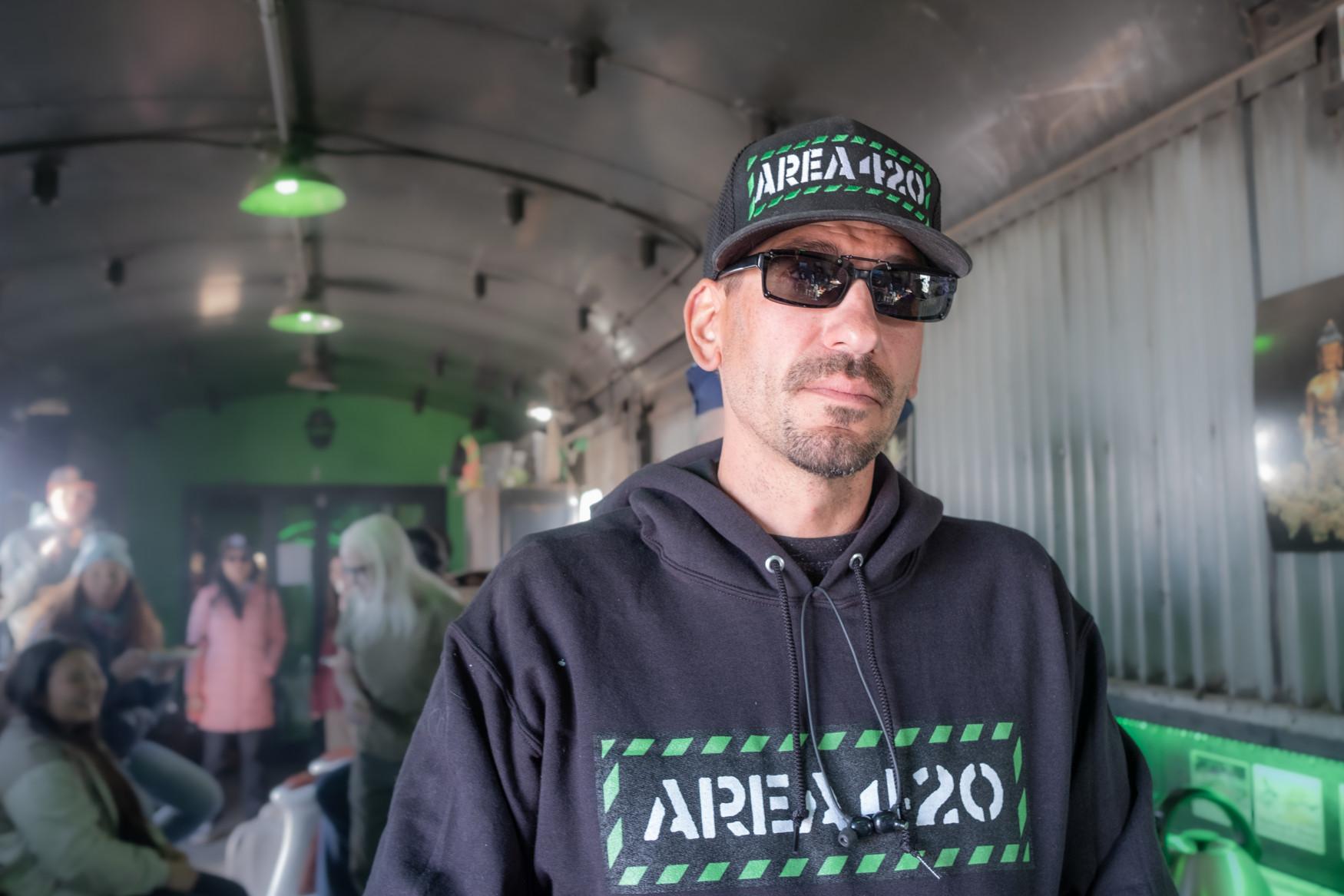By Kim Black
Scattered along Highway 17 are greenhouses dedicated to the cultivation of marijuana, an industry that seemed to explode overnight after legalization of recreational use in 2012. The influx of cannabis growers to the San Luis Valley (SLV) has brought notable changes to our economy, population, landscape, and trajectory. The town of Moffat has seen these changes perhaps more than most with the arrival of one of the largest commercial cannabis farms in the state, Area 420.
Spanning 420 acres across from the highway, the Area 420 Cannabis Business Park attracts independent cannabis farmers from all over the world who run small operations at the location. Their plans as a collective are to become licensed for centralized distribution channels, and to be able to sell their product direct to market.
Zoned for licensed, commercial grows, marijuana-infused product laboratories, testing labs and research facilities, Area 420 is an attractive prospect for anyone in the industry. In fact, owners Mike Biggio and Whitney Justice report that 12% of all licenses in the state come from Area 420. They boast that production is a fraction of the cost of other locations in the state and country because of the natural sunlight, low excise taxes, and licenses authorized by town ordinance.
To Moffat’s Mayor Cassandra Foxx, “Area 420 is bringing nothing but good things to the community” as well as “possible solutions for the town.” Increased tax revenue from the business park is planned to help fund Moffat infrastructure, improve water and sewer systems, roads, and assist with plans for a geothermal power plant. The increased tax revenue for Moffat comes from a 2% marijuana excise tax and licensing fees. Growers also pay a 15% excise tax to the state of Colorado, which was approved by Moffat registered voters.
Allocating these funds to installing a water and sewer system for the town is a top priority for Mayor Foxx, who says they are “just at the beginning stages.” The town is currently collaborating with Biggio and Justice to improve Moffat’s multiple municipal wells by installing Colorado Department of Public Health and Environment approved distribution lines, chlorination systems, and wastewater treatment systems.
The town of Moffat and Area 420 owners are also collaborating to propose two 5-megawatt geothermal power plants for the area in attempts to solve energy problems. Grant money will be used to cover the exploratory portion for geothermal spots; once located, investors can begin building. Advocates urge that geothermal power could connect neighboring towns and SLV communities.
Appealing to “cannabis tourism,” a $17 billion market according to a recent Forbes Magazine article, is another goal for the business park owners. “We want to generate millions of dollars for the town,” says Biggio. Airbnb houses and community events with vendors and food trucks are all offerings to visitors. An old train car off from their communal gathering space is used to host their podcast show and another dining car is planned to function as a state-licensed consumption lounge and VIP area. A double-decker train car is also being built into a dispensary.
Lastly, Area 420 is having a dramatic impact on Moffat’s population count and voter base. Since the town currently has no zoning regulations in place, growers can live on-site. Moffat’s current population is around 120 people, with 73 registered as voters. Mike Biggio says there are at least a hundred people currently living at Area 420, with more expected in the coming year. The next census would include them, and if growers become registered to vote locally, the voter base would increase significantly.
“Area 420 is bringing
~ Mayor Cassandra Foxx
nothing but good things to
the community.”
The changes brought by the cannabis industry have not been welcomed by all. Misaligned values and the stigma that marijuana carries have brought opposition from locals. This was evidenced during a name change discussion of Moffat to “Kush” in 2022. During a town hall meeting, opponents voiced concerns that the name change would result in a loss of town identity, history, and heritage. Furthermore, not all locals want to see more development in their remote town. Higher tourism traffic, added infrastructure, and an increased population are all contributors to a rapidly changing place, perhaps at the cost of pushing some locals out.
Mayor Foxx encourages those with concerns to get involved and provide feedback. “We are trying to grow together as a town,” she says. She wants the local community to be a part of that growth and future. Unfortunately, participation at weekly town hall meetings has been slim, Foxx reports, except for during the proposed name change. Moffat needs more people to join the planning commission and board of adjustment to discuss these concerns.
Longtime Valley residents recall that before Area 420’s arrival there was a small marijuana growing presence in Moffat but nothing on this scale. From tourism to geothermal power and sewer systems, Area 420 impact on Moffat stretches beyond just marijuana. Whether the changes are embraced or unwelcomed, the Moffat community must come together to guide the change.


